|
In the New Testament (Matthew 22:[35-39], when tested by a lawyer, Jesus gave his two commandments that one should follow:
One is zooming out to God, who sees everything from above and is looking out for you, and the other is zooming in, where you are looking out for your neighbor. These two commandments are universal, irrespective of your beliefs. They make you a better person. But a lot has changed since Jesus spoke these two commandments in the Gospel of Matthew. So, what two commandments would apply to the world we live in today and better equip you to make sense of complex things? I came up with two. Commandant One Ask this fundamental question: "What is going on here?" Commandment Two Follow the money These apply to anything, including politics, business, relationships, etc. You need both to make better decisions. When you only zoom in, you will miss the big picture. And when you only zoom out, you may miss the details that will give you a clearer picture of why something is awry. You need both. Example of the importance of Commandment One The importance of this commandment is best crystallized in Kazuo Ishiguro's book "Remains of the Day." Mr. Cardinal, a journalist, is a godson of Lord Darlington, owner of the stately home Darlington Hall. Mr. Stevens is a butler at this place. Mr. Cardinal is at Darlington Hall when a monumental meeting, brokered by Lord Darlington, is taking place between the Germans and the British that could either bring world peace or catastrophic world war. Stevens shows no interest in the significance of this meeting. He is only interested in being the best butler, which is admirable, but one would think he would be interested in knowing a little about this high-powered meeting. So, when Mr. Cardinal tries to find out if Stevens has any clue about what is happening in one of the rooms, Stevens has no idea and does not care. Mr. Cardinal asks the most critical question, "Do you know, Stevens, what is going on here?" Mr. Cardinal adds, "The British Prime Minister and the German Ambassador are brought together by your employer for secret talks in the night, and you're not even curious?" Stevens replies, "I would not say I am not curious, sir. However, it is not my position to display curiosity about such matters." Stevens is focused on making sure that everything goes well during this meeting. And one would agree that Stevens does not need to meddle in something that is way out of his understanding or expertise. But so is Lord Darlington. What he is doing is also way out of his understanding and expertise. But that does not excuse both of them from asking the fundamental question that Mr. Cardinal is asking Stevens. Both Stevens and Lord Darlington are zooming in only and are incable and unwilling to zoom o out. Unfortunately, we all fall into this trap of being zoomed in and completely miss what's going on in a complex situation. Example of the importance of Commandment Two In this famous scene from the movie "All the President's Men," a journalist from Washington Post, Bob Woodward (played by Robert Redford), is having a secret meeting with a government official (known as Deep Throat) in a parking garage to get information regarding the Watergate break-in of the Democratic National Committee (DNC) headquarters. The informant tells Bob Woodward to follow the money and will help Woodward by confirming whether he is on the right track. But the informant's simple advice to Woodward to get closer to the truth is to just follow the money. He and his colleague Carl Bernstein at the Washington Post did just that and found out that it led to the president of the United States. This advice by Deep Throat makes sense since you need money to get things done. You can do forensics on that, and you can see what took place, when it took place and who was involved. The flow of money leaves a lot of breadcrumbs that can be traced to help you see the big picture. For the Watergate investigation, Woodward and Bernstein needed to find out who paid the burglars who broke into the DNC headquarters. Once they traced it to the Republican party, they had to find out how high it went. As it turned out, it went to the very top. This led to a congressional hearing, potential impeachment, resignation, and eventual pardon. Money deposits valuable clues that can't be ignored. Combine the two commandments, and you have something that can help you find the truth in just about any complex situation. ##### 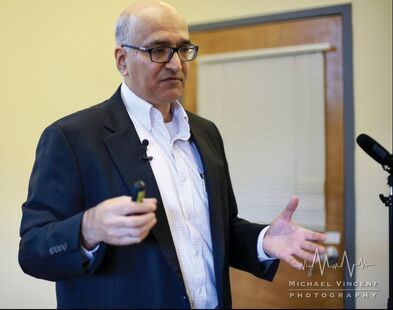 Time is Money, Communication is Wealth I guide people succeed when they must win, such as getting a good job, advancing in career or winning a sales deal. I wrote a practical, no-nonsense book on winning titled Winning Speech Moments: How to Achieve Your Objective with Anyone, Anytime, Anywhere. Get the Free Speech Checklist Email: joza@winningspeechmoments.com Phone: 732-847-9877
0 Comments
Cloud Giveth Without the Cloud, businesses can't thrive in today’s economy. The proof is everywhere. The Cloud has helped companies, large or small, become much faster, cheaper, better, and smarter than before. Companies don't have a choice about adopting the Cloud. Customers have made that decision for them. Customers demand speed, efficiency, low cost, and excellent experience. The Cloud facilitates this. Companies that are flexible and make customers' lives easier win; companies that don't, unfortunately, get "blockbustered." Without the Cloud, companies can't create innovative business models to penetrate and capture a market from entrenched players. The Cloud is democratic. It allows anyone, anywhere, anytime to target and capture someone's market presence. Besides death and taxes being certain, you can add that someone right now somewhere out there is tirelessly working to disrupt your business with an innovative business model. Today CEOs are no longer paranoid; they are hyper-paranoid. Without the Cloud, companies can't make money. Companies have to make big investments to leverage the Cloud for both growth and scale. Not a day goes by without you hearing about an upstart becoming a unicorn (achieving a billion-dollar market valuation). The Cloud has created enormous wealth. But the days of “free cash flow” are over. Cloud Taketh Away The Cloud allows companies to be on offense in capturing and increasing their market share. But they also have to be very good at playing defense. They have to be competent in defending their cloud environment from cyber attacks. Just as companies use the Cloud to make money, cybercriminals are also using the Cloud to make money. The cybercriminals know where the money resides. Cybercriminals are constantly looking for vulnerabilities in your cloud environment. They know that all they need to do is find one vulnerability, and they hit the jackpot. Cyber Insurance To protect your business, you can do one of two things: Obtain a costly cyber insurance policy to pay off cybercriminals when they hold your business hostage. Or, you can invest in cyber security by proactively identifying potential vulnerabilities as you keep adding new applications, servers, devices, etc., to your cloud environment necessitated by the growth of your business. You will have to invest in cybersecurity to protect against cyber attacks. Or you will have no alternative but to pay a hefty ransom and stay quiet, so no one knows how vulnerable your cloud environment is to cybercriminals. Companies have to pay a "cloud tax." The only thing you can control is how much you can reduce this tax. Reducing Your "Cloud Tax" You can only reduce your "cloud tax" by using technology. One of the technologies companies are using to proactively identify vulnerabilities in their cloud environment is artificial intelligence (AI) and machine learning (ML). According to Dr. Umesh Hodeghatta, Head of Cybersecurity and AI Solutions at BusinessAnalyticsR, whose company recently implemented an AI/ML based cyber security solution for Walmart, "Exploitation of vulnerabilities can be predicted much more efficiently using AI and ML to protect your cloud environment. Doing this manually is not only time-consuming and laborious, but it's error-prone and ineffective in thwarting cybercriminals. Furthermore, cybercriminals have access to the same technologies, so you must be better, smarter, faster in finding vulnerabilities than they are." Companies do have competency in AI and ML, but it is directed toward growing and scaling their businesses, not protecting their cloud environment. Companies simply don't have the expertise in multiple technologies necessary to protect their cloud environment, such as data, AI & ML, and cyber/information security. Another challenge companies face is that it is difficult to find cyber security experts. According to Bloomberg Radio, there are close to 500,000 open positions in the area of cyber security. So unless you have a large budget, it will be very hard to find the talent you can afford to build out your defense against cyber attacks. What to Do? Cyber security is still viewed by many companies as a cost center. However, it needs to be viewed as a business continuity center. For example, suppose your cloud environment's security is breached. You will not only lose money by paying cybercriminals, but, worse, it will tarnish your reputation with customers, partners and investors. That is much more costly than the ransom you have to pay. Ransom payment may be in millions, but shareholder losses can be in tens of billions. If successful, cybercriminals will not only have breached a vulnerability in your cloud environment but exposed your corporate culture of not taking cyber security seriously. You will be made to look foolish and butt of jokes on late night comedy shows. The question you will be left asking as a CEO and CISO is: "Did we do everything possible to protect our cloud environment?" Unfortunately, that question needs to be asked right now and every day moving forward. You have no choice. It's too late to ask this question after the breach. Today, a CEO and a CISO’s job security depend on their success in staying ahead of the cybercriminals. The best way to stay ahead of cybercriminals is to gain a competitive edge using AI and ML methods to not only ensure business continuity, but keep winning by capturing and growing markets. To be a business champion, companies have to be great on both offense and defense. If you want to learn more about using AI & ML methods for cyber security, watch this webinar by Dr. Umesh Hodeghatta: https://www.brighttalk.com/webcast/16781/372481/applying-machine-learning-in-cyber-securit If you want to learn how to secure your cloud environment using AI & ML methods in retail, please register for the free BrightTALK event scheduled on September 15th: https://www.brighttalk.com/webcast/16781/506802?utm_source=NUSigmaUSquareAnalyticsLab&utm_medium=brighttalk&utm_campaign=506802 ##### 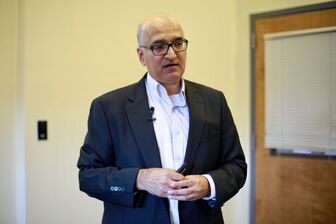 I guide people succeed when they have to demonstrate value. It could be to get a job, win a sales deal or get ahead at work. I wrote a practical, no-nonsense book on delivering value through speech titled Winning Speech Moments: How to Achieve Your Objective with Anyone, Anytime, Anywhere. Get the Free Speech Checklist Email: joza@winningspeechmoments.com Phone: 732-847-9877 Time is Money, Communication is Wealth The 2021 US Open came down to two players: Jon Rahm from Spain and Louis Oosthuizen from South Africa. Jon Rahm played well but needed to make a difficult birdie on the 17th hole and 72nd hole. He did and led by one stroke. Louis Oosthuizen could beat Rahm if he duplicated that feat or, worse, tied Rahm into a two-hole playoff. Golf is cruel since good, and bad things happen on the finishing holes of a tournament, which is typically 71st hole and 72nd hole. Rahm played these two holes flawlessly and put himself in a position to make two birdie putts to lead the tournament. The only player who could beat Rahm or tie him was Oosthuizen. Oosthuizen made two big mistakes from the tee that cost him the tournament. On the 17th hole, he hit his drive out of bounds. Oosthuizen had to take a penalty and proceeded to bogey the hole. If he had hit the ball on the fairway or even put the ball in the rough on the right side, he would have walked away, at worse, with a par. The one place he could not hit it was on the left, and that's where he hit his tee shot. This one mistake cost him the tournament. On the 18th hole, he hit a drive into the rough. He could not go for the green in two. He had to lay up and try to make an impossible eagle from about 70 yards out. He did get the ball close and birdied the hole and lost by one stroke. The final score indicates that it was very close. But it wasn't since the drive on the 17th decided the tournament. Once Oosthuizen hit it out of bounds, he had no chance to win. So what's the lesson here? You must get off to a great start that puts you in a position to win. This means in a tournament and even every hole you play. Rahm did that and won. Oosthuizen didn't and lost. To play well in golf, you must hit the drive in the fairway. Then you must hit the next shot on the green. If you do, then you can walk away with a par. But you are also putting yourself in a position to get a birdie. This sounds simple, but you will pay if you don't do that sooner or later. And this is what happened to Oosthuizen on the 17th hole. Oosthuizen played well, but it came down to one mistake. If he makes par on that hole, he would have most likely tied Rahm and anything could happen in a playoff. To win a US Open, you not only have to be a complete player, which all pros are, but you have to execute when it matters. That's what separates the winner from the rest. And that's why John Rahm is the 2021 Men's US Open Champion. He could execute on Sunday when others could not. That is the difference between winning and losing at a highly competitive event. ##### 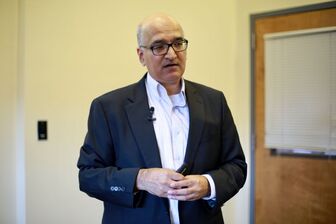 I guide people make money, grow money and acquire financial freedom. I do it by guiding people focus on thriving on high stakes stage whether it's for a job interview, career advancement, a sales presentation or a high-stakes speech. I wrote a practical, no-nonsense book on success titled Winning Speech Moments: How to Achieve Your Objective with Anyone, Anytime, Anywhere. The main idea of the book is that if you want to succeed in anything, you must create a winning speech moment. That is all people will remember. Just Do IT and WIN! To get started with executive coaching I offer Intro to Coaching program that consists of two sessions for $300 where I help people answer a simple, yet difficult question: Tell me something about yourself. You must nail this to make a good first impression. Let's get this right for you so you can get ahead. Get the Free Speech Checklist Email: joza@winningspeechmoments.com Phone: 732-847-9877 Time is Money, Communication is Wealth The 2021 Women's US Open Golf Tournament had a lot of drama. It had Lexis Thompson, who looked flawless halfway on Sunday. At one point, she was leading by five strokes and looked like a sure winner. Philippine's Yuka Saso, playing with Thompson, looked like she was out of the tournament at one point. But in golf, especially the US Open, anything can happen. And happen it did. Thompson stopped looking flawless, and Yuka steadied her game. Saso fought her way back and got into a playoff and then beating Japan's Nasa Hataoka in the playoffs to win the Women's US Open. I think three things were responsible for her win: 1) Copy a great player 2) Stay calm 3) Trust the process Copy a Great Player During the broadcast, the announcers on the Golf Channel compared Yuka Saso's swing to that of Rory McElroy, a great player on the men's tour with four majors. From watching the tournament, it was obvious that Saso had a very good repeatable golf swing. To succeed in golf, one needs a solid swing that is repeatable under pressure. And Saso showed this at the end that her swing was well-honed for a major golf tournament. Saso has never met McElroy, yet from watching the videos, she has replicated her swing that is a carbon copy of McElroy's swing. Now we can all do this when it comes to writing, speaking, acting, etc. You just have to reverse engineer it and then see what works and how you can do the same. I think this is an excellent way to become a good speaker. People who are great at what they do tend to be very open about what they do. You just have to dissect it and make it your own. That is what winners do. Don't try to figure it out yourself. That is not how greatness works. Stay Calm Saso did not play well in the beginning on Sunday but remained calm. She did not get flustered seeing her opponent was running away with the tournament. Saso could not do anything about Thompson's performance; she could only control her performance. A winning professional in any situation knows how to stay calm when things are not going well. You do not want emotion to take over your objective on what you have to do to win. Winning does not care that your feelings are hurt, or you hit a bad shot. Winning does not care what you think. Winning only cares about winning. You just have to learn to deal with this and become a winner. Trust the Process When Saso was interviewed after she won, she kept saying that she just trusted the process. This indicates that she was well trained mentally. Saso knew she would encounter difficulties but must stick to the process that got her to the US Open and in the final pairings. She did stick to the process and won. In golf, Winning cares only about who posts the lowest score. You just have to trust the process that will get you that score. You can't abandon what you have done for hours, days, months and years when it matters. You have to stay faithful to the process and then see if you need to refine it, if necessary. Sometimes you can do everything right and lose. Occasionally, you can do a lot of things wrong and win. This is life. Just get over it and see if anything went wrong with your process. If not, continue to trust it. Saso won one of the most prestigious tournaments. We all can learn from how she did it and succeed in something prestigious in our profession. ##### 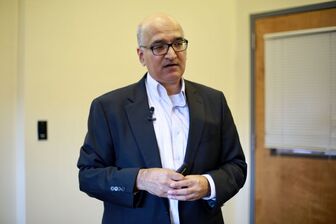 I guide people become independent by making money, growing money and having FU money. If you crave independence, then you should contact me. I focus on thriving on high stakes stage whether it's for a job interview, career advancement, a sales presentation or a high-stakes speech. I wrote a practical, no-nonsense book on success titled Winning Speech Moments: How to Achieve Your Objective with Anyone, Anytime, Anywhere. The main idea of the book is that if you want to succeed in anything, you must create a winning speech moment. That is all people will remember. Just Do IT and WIN! To get started with executive coaching I offer Intro to Coaching program that consists of two sessions for $300 where I help people answer a simple, yet difficult question: Tell me something about yourself. You must nail this to make a good first impression. Let's get this right for you so you can get ahead. Get the Free Speech Checklist Email: joza@winningspeechmoments.com Phone: 732-847-9877 Time is Money, Communication is Wealth How many times have you heard that you must develop strong relationships to succeed in business? This was true in the past, but I don't think it is true today. The reason for that is that people don't have time, money, or energy to develop business relationships. Like Maverick in the movie "Top Gun," people have need for speed. People want things done that is fast, affordable, and well. Unfortunately, that is not likely to happen when people are involved. People slow things down that is if they don't screw up. How long have you had to wait when you last visited a doctor? I recently had to get cataract surgery for my eyes, so I had to visit Ophthalmologist's office several times. The average wait time after I arrived at his office was close to one hour. Since it took me one hour to get to his office, I left my house 15 minutes before the appointment and called from my car five minutes before my appointment. I reduced my wait time to just 10 minutes. This is what you have to do when you are dealing with people. I am currently working with a highly recommended contractor to get work done at my mother's house. I thought I developed a good relationship with him. I was wrong. It was a real pain to get the roofing work done. Then It took me a month after the roofing work was completed to get the attic fan to work. More work is still to be done, and he has gone quiet again. I can get his attention if I go on Google and give him a one-star review. This is what you have to do when you are dealing with people. More I work with people, more I want to do business with Amazon. They never fail to provide excellent customer experience. Amazon does three things well: responsiveness, relationship, and reliability. I trust Amazon so much that I prefer paying more when I can get items cheaper elsewhere. Amazon provides excellent customer experience every time. I can't remember the last time I spoke to anyone from Amazon. They go out of their way to avoid my talking to anyone. I am not looking for relationship with anyone from Amazon; I am looking for just excellent customer experience. So are relationships with people important today? No. You should look for a relationship built on experience not relationship with people. Companies like Amazon can scale their relationships very fast and it's long lasting. Building relationship with people is time-consuming, unpredictable, and frustrating. That's why it is very hard for a sales person to be better than Amazon sales. And they do it without salespeople. So do you really need to spend time building relationships with people to do business? ##### 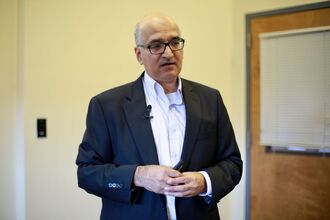 I guide people become independent by making money, growing money and having FU money. If you crave independence, then you should contact me. I will help you make money by thriving on high stakes stage whether it's for a job interview, career advancement, a sales presentation or a high-stakes speech. I wrote a practical, no-nonsense book on success titled Winning Speech Moments: How to Achieve Your Objective with Anyone, Anytime, Anywhere. The main idea of the book is that if you want people to succeed in anything, you must create a winning speech moment. Please contact me if you are driven to be financially independent when you are still young. You can reach me at joza@winningspeechmoments.com or 732-847-9877. Remember, Time is Money but Communication is Wealth The most important question you can ever ask yourself or someone to make sense of a difficult situation is, "What's going on here?" Marvin Gaye recorded a famous song asking, "What's going on?" He was trying to get people to make sense of the Vietnam War, poverty, racism, and social justice so people can peacefully take action to effect change. I somehow never paid close attention to the message behind that song. However, I recently understood the importance of this question when I read the modern classic Remains of the Day by Kazuo Ishiguro. James Stevens, a high-end butler, is focused on being a great butler for a large house in the book. He doesn't know why the British leaders and the German Ambassador are meeting in the house in the late 1930s. They are meeting to see how the British can appease Adolph Hitler so his army can occupy Sudetenland in Czechoslovakia. Mr. Cardinal, son of the house owner's friend, visited the owner when the meeting is taking place. He knows what's going on. He asks, "Do you know, Stevens, what's going on here?" To which Stevens replies, "I'm afraid not, sir." Stevens did not know, nor was he curious. What was going on in the nearby room would start World War II and ruin his owner's reputation as a Nazi sympathizer. Furthermore, Stevens also did not know nor care that he was about to lose a potential life mate in Miss Kenton, a housekeeper, who was in another room. When Stevens got older and had time to reflect, he had regrets of not being attuned to what was going on at that time. But it was too late. We are all like Stevens. We often don't ask this simple question when we are dealing with a difficult situation. But asking the question makes you live in reality. Unfortunately, for many, living, in reality, is hard. Many prefer to live in a "matrix" where everything looks fine. But later, as they get older, they have regrets about how they could have been so naïve. Asking this simple question is hard. But objectively answering it is harder. Doing something about it is the hardest. So look at some examples where you can ask this question with what's going on around you.
First, you have to ask the question. Second, you have to answer it by putting yourself in other people's shoes. Third, what are you going to do about it? You alone can't fix anything, but you can do your part so you don't have any regrets later in life. For example, my family and I were angry about how George Floyd was killed by the police in Minneapolis in May 2020. We asked the question, "What's going on here?" Though none of us has ever had a bad experience with the police (in fact, we donate every year to the local PBA for the outstanding work they do). Unfortunately, our experience is not the experience for many African Americans and Hispanic Americans. We showed our support for a change in policing by participating in a local march for change. And we also voted for Joe Biden in November of 2020 since he talked about this issue and wanted to make a change. Now that Joe Biden is the president, his justice department is bringing civil rights charges against the police who used unnecessary force. In addition, President Biden is working with Congress to pass bipartisan legislation to enact police reform. We did our part by asking the simple question, "What's going on here?" Thought this question was for a national issue, but it applies to just about anything that requires a change. Change can only happen if you ask, think, act and persist. If you don't ask this question, you can't get to the root of the problem. You will end up accepting and mouthing other people's thoughts and opinions. You can't outsource the answer to this question to anyone. You have to do the hard work. Next time when there is a problem you see in your life, at a company, in a country, or in the world, you may want to spend some time asking, "What's going on here?" After you come up with an answer, you will know how to approach the problem or situation. At the least, you will not have any regrets later that you did not even ask this question when it mattered. #####  I guide people thrive on high stakes stage whether it's for a job interview, career advancement, a sales presentation or a high-stakes speech. I wrote an advanced and comprehensive book on public speaking speaking titled Winning Speech Moments: How to Achieve Your Objective with Anyone, Anytime, Anywhere. The main idea of the book is that if you want people to remember you and take action, you must create a winning speech moment. Please contact me if you would like to thrive on high stakes stage. You can reach me at joza@winningspeechmoments.com or 732-847-9877. Remember, Time is Money but Communication is Wealth In the blog post "What makes you great at your profession?" I pointed out the importance of asking a fundamental question on what makes one great at your profession to improve. However, there is a negative side to being obsessed with being great at your profession. Again, I will use the modern classic "Remains of the Day" by Kazuo Ishiguro as an example. As I pointed out in the blog post, "What makes you great at your profession?" James Stevens gives a lot of thought to what makes one a great butler. He came up with two attributes: dignity and attachment to a distinguished household. I wrote this blog post because there is a price one pays to be great at something. We always focus on the gain and not the loss of being great. But as you will see from reading this post, you always lose something to gain something. And sometime trying to be great at something can have deleterious effect on you personally, professionally and/or financially. With Stevens, two monumental things are happening at the same time. One, he is about to lose Miss Kenton. Second, he is going to let his employer disgrace himself by being a Nazi sympathizer. Stevens' employer has been hoodwinked by the Germans about their true intentions. He is hosting a meeting between the British Prime Minister, Foreign Secretary, and the German Ambassador where a decision will be made. That decision will involve the British Prime Minister to appease Adolf Hitler and allow Germany to occupy part of Czechoslovakia, known as Sudetenland if, in return, Hitler promises to preserve peace but not invading any countries. For Stevens, two monumental things are happening at the same time that is going to give him regrets later but is completely oblivious of it as it is happening. He can't see anything besides what he is conditioned to see happening. Miss Kenton James Stevens is about to lose Miss Kenton forever. She informs Stevens that she has received a marriage proposal. Miss Kenton is trying to gauge whether Stevens has any romantic interest in her. She tells Stevens on two occasions that she has still not made a decision. Stevens doesn't say anything to make her not accept the proposal. Miss Kenton tries one more time to make sure that Stevens has no interest in her by asking, "But I can see you are very unhappy about my going out tonight." Stevens is focused on being a great butler for the big meeting that will be taking place in the mansion. He does not say anything to prevent Miss Kenton from accepting the marriage proposal. When Miss Kenton comes back from her meeting, she wants Stevens to know what happened as she asks him, "Are you not in the least interested in what took place tonight between my acquaintance and I, Mr. Stevens?" Stevens shows no interest as he replies, "I do not mean to be rude, Miss Kenton, but I really must return upstairs without further delay. The fact is, events of a global significance are taking place in this house at this very moment." Stevens is only focused on being a great butler by maintaining his dignity and doing his job well, so his employer plays a significant part in serving humanity. To Stevens, Miss Kenton leaving him for another man is insignificant. Significant Meeting Stevens leaves Miss Kenton to attend to his butler duties when he runs into Mr. Cardinal. The latter is a young man well acquainted with Stevens. Mr. Cardinal is a godson of Stevens' employer. In his meeting with Stevens' employer, he learned the significance of what is taking place at the mansion. He tries to convince Stevens to do his part to save his employer from being duped and disgraced. Like Miss Kenton, Mr. Cardinal gives Stevens several chances to save his employer from ruining his reputation as a Nazi sympathizer. Mr. Cardinal asks, "Stevens, do you know what is happening at this very moment as we sit here talking?" Stevens has no curiosity at all about the significance of what is taking place. He just wants to be a great butler. When pressed further by Mr. Cardinal, Stevens replied. "It is not my place to be curious about such matters, sir.' Mr. Cardinal asks if he has seen how his employer has been hoodwinked by the Germans for the last three to four years regarding their true intentions. To which Stevens replies, "I'm sorry, sir, I have failed to notice any such development." Stevens could not save Miss Kenton from leaving him, nor could he save his employer's reputation. He was oblivious to what was happening that evening. From Stevens's viewpoint, he was very pleased with how everything turned out. He maintained his dignity and served his employer well so his employer could do his part in "helping" humanity. So my point in using this example is to show that being great at something is fine, but it has the potential to create blind spots that could make you vulnerable to losing something else. There is no such thing as a free lunch when it comes to being obsessed with greatness. In closing, I want to use a real-world example in Deborah Birx, President Trump's White House coordinator for the pandemic response, that shows when one is obsessed in serving one's employer, it can produce catastrophic result. In the Op-Ed in Washington Post by Matt Bai titled "The Birx dilemma is a lesson for the ages," he writes that appeasement "doesn’t work for nations facing down aggressors. It doesn’t work for a political party that’s been taken over by a nativist bully. And it doesn’t work when you’re serving a president who demands unyielding loyalty and a willful disregard for the truth." The catastrophic result, according to her that more than 400,000 people didn't have to die from Covid-19. Deborah Birx had earned her stellar reputation as doctor who was involved in the global fight against AIDs. Because of her greatness, she was picked to advice President Trump. And that's where she developed a blind spot in protecting him over the American people. Though she may try her best to salvage her reputation, but most irreparable damage has been done. Sooner or Later, we all will face this dilemma like James Stevens in "Remains of the Day," and Deborah Birx in real life. How will we handle it? #####  I am an author, speaker, career success coach. I guide people thrive on high stakes stage whether it's for a job interview, career advancement, a sales presentation or a high-stakes speech. I am the author of a practical book on speaking titled Winning Speech Moments: How to Achieve Your Objective with Anyone, Anytime, Anywhere. The main idea of the book is that if you want people to remember your speech and take action, you must create a winning speech moment. Please download the free speech checklist I created that I always use to create a winning speech for any occasion. Please contact me if you would like to thrive on high stakes stage. You can reach me at joza@winningspeechmoments.com or 732-847-9877. Note, if you are an author, executive, podcaster or interesting and would like me to interview with five questions and then publish it as a blog post and promote it on LinkedIn, Twitter and Facebook and become famous, please contact me. When was the last time you asked this question? You probably have never asked if you are like me, let alone even thought about asking this question. But how would you answer this question if you are asked at the final stage of your job interview? The answer could determine whether you get the job or not. I think it's a great question that will tell a lot about how you think, act, and excel in your profession. After reading the modern classic "Remains of the Day'' by Kazuo Ishiguro, I started thinking about this question. In the book, James Stevens, a butler, asks, "what makes a great butler?" He gives a lot of thought to this question as he is traveling in England's countryside. He comes up with two attributes of a great butler: dignity and attachment to a distinguished household. Dignity By this, Stevens means a butler gets the job done for his employer without anyone even knowing it. There are other attributes, such as competence, that are important, but it's dignity that stands above all for being a great butler. Stevens believes one could develop dignity through hard work, experience and self-learning. Stevens gives three examples of what he means by dignity in a great butler. I will use two of the examples in this post. The first one is a story Stevens heard from his father, who was also a butler. Stevens considered his father to be a great butler. The story is about a butler who had traveled with his employer to India and the incident that showed the butler's dignity in handling a dangerous situation. One afternoon the butler entered a dining room and saw a tiger relaxing below the dining table. The butler calmly approached his employer in a drawing-room (today it would be called a living room) where he was having tea with his guests. The butler let out a polite cough to get his employer's attention and whispered in his ear that there was a tiger in the dining room. He asked for his permission to use a shot-gun to take care of the situation. Soon, three shots were heard. A few minutes later, the butler appeared in the drawing-room to refill the teapot. When the employer asked if everything was fine, the butler replied, "'Perfectly fine, thank you, sir...Dinner will be served at the usual time, and I am pleased to say there will be no discernible traces left of the recent occurrence by that time." Stevens mentions that his father always laughed when he would repeat when butler added "no discernible traces left of the recent occurrence by that time." He was laughing since the butler is saying to his employer you don't need to explain anything to your guests since there is no evidence of anything occurring. The butler in the story did not panic. He got the job done and, most importantly, maintained his and his employer's dignity by not having the employer's guests get frightened and ruining their pleasant visit. The other incident of dignity involved Steven's father when he was a butler. This story was relayed to Stevens by someone named Mr. Charles, who was present when it occurred. One day Mr. Charles and two of the guests of an employer got in a car to be driven around by Stevens' father. The guests were drunk and got rowdy. They started criticizing Stevens' father for what they perceived was his driving mistake. They also started criticizing Stevens' father's employer. That was the breaking point for Stevens' father. He stopped the car, opened the back door, and just stood there showing his displeasure at the two guests. The guests had no idea what Stevens' father was going to do next. He just stood there with the door opened. Soon the two guests realized that they were at fault, and one of them muttered. "I suppose we were talking a little out of turn there. It won't happen again." Stevens' father gently closed the door and continued his driving as if nothing happened. Stevens shows that his father did not lose control, confront the guests, or return home immediately. He calmly handled a difficult situation with dignity. No one got hurt, and the employer didn't have to know what happened. Everyone's dignity was preserved. Attachment to a distinguished household The second trait to being a great butler is belonging to a distinguished household working for a renowned man. The reason for this is, as Stevens explains, that movers and shakers of the political and business world meet at such mansions where big decisions are made. A butler's job is to make sure everything goes smoothly. The great butler makes sure that the employer looks good and plays his part in solving big problems. As Stevens gives more thought to this, he says, "association with a truly distinguished household is a prerequisite of 'greatness.' A 'great' butler can only be, surely, one who can point to his years of service and say that he has applied his talents to serving a great gentleman – and through the latter, to serving humanity." What makes one a great public speaker? I am a public speaker, so I thought about this question like James Stevens. I believe a person is considered a great public speaker if he or she achieves the following: 1) moves people to action 2) speaks the truth 3) takes personal risks 4) changes the world in a positive way 5) becomes immortal through his or her speeches Based on these criteria, the list gets very narrow, and we're left with Socrates, Jesus, Lincoln, Gandhi, JFK, MLK, and Malcolm X. The negative side of being great at your profession There is also a negative side to being obsessed with being great at your profession. To learn more on how this obsession ends up hurting James Stevens, I encourage you to read my blog post titled, "Being great at your profession creates blind spots." #####  I am an author, speaker, career success coach. I guide people thrive on high stakes stage whether it's for a job interview, career advancement, a sales presentation or a high-stakes speech. I am the author of a practical book on speaking titled Winning Speech Moments: How to Achieve Your Objective with Anyone, Anytime, Anywhere. The main idea of the book is that if you want people to remember your speech and take action, you must create a winning speech moment. Please download the free speech checklist I created that I always use to create a winning speech for any occasion. Please contact me if you would like to thrive on high stakes stage. You can reach me at joza@winningspeechmoments.com or 732-847-9877. Note, if you are an author, executive, podcaster or interesting and would like me to interview with five questions and then publish it as a blog post and promote it on LinkedIn, Twitter and Facebook and become famous, please contact me. Timing is very important. Daniel Pink wrote about the importance of timing in his excellent book "When: The Scientific Secrets of Perfect Timing." As Daniel Pink points out, there are tons of books on how-to but very few on when-to. In his book, Pink throws a lot of science at you. In this post, I will throw some literature at you to show the importance of timing. Timing is important, but your approach is also important; hence, there are two parts to success: when-to and how-to. You could do everything right, but you are likely to fail if it does not take place at the right time. But if you get the timing right, then how-to may not be that important. But you don't want to wing it either just because you got the timing right. Ideally, you want to get both when-to and how-to right when you want something. In this post, I am going to use an example from a modern classic novel. I will look at the situation James Stevens, a butler at Darlington Hall, finds himself in the book "Remains of the Day" written by Kazuo Ishiguro. Since we deal with this situation occasionally, I will present the example as situation, problem, solution, outcome, and lessons learned. Situation A butler named James Stevens has a new employer of Darlington Hall, Mr. John Farraday. Farraday suggests to Stevens to get out of Darlington Hall and take a journey in his car from the countryside of England to the West Country. Farraday will cover the cost of the gas. While Stevens is thinking about it, he receives a letter from a former housekeeper named Miss Sarah Kenton. Stevens reads in the letter's content that Miss Kenton may be open to coming back to her old job at Darlington Hall. He also learned that Miss Kenton resides in the countryside where Farraday suggested he take a trip. Stevens wants to bring this up with Farraday that he will travel to the countryside. He also wants to bring up whether Farraday would cover the cost of lodging, meals, and snacks. Furthermore, Stevens also has a professional reason to make the trip. Problem How to bring this up with Mr. Farraday? Stevens wants to make the trip and would like to hire Miss Kenton if she is interested. Stevens is thinking about the timing. If the timing is not right and Farraday says "No," then Stevens believes it would be difficult to bring it up again. Stevens has concluded that it is one and done. Solution He decided that he will bring it up during the afternoon tea. This was the right time. Stevens got the when-to figured out. Outcome Stevens was right on the timing but was off on the how-to. He did not work on that part right which bothered him. It did not go as he expected. Stevens did not take into account that Mr. Farraday likes to banter at that time of the day. Stevens mentioned that a former housekeeper resides where he was planning to travel. The conversation went in a different direction than he anticipated. Stevens realized he made a mistake bringing up Miss Kenton before explaining the situation first and the need to hire an additional staff member. Farraday commented, "My, my, Stevens. A lady-friend. And at your age.' Stevens did not want to make a second mistake by saying anything more. Lesson Learned Timing is important. But how-to is also important. Stevens gets an "A" for timing but an "F" for his approach. What should he have done? How-to Stevens could have done the how-to it as Lisa Earle McCloud writes in her blog post on LinkedIn titled "How To Get People To Buy Into Your Ideas." In the post, she recommends you do it in the following order: context, framing, and content. Context -- Present the situation. Framing -- Help someone understand the situation better. Content -- Show how to address the situation. Stevens could have done it as follows: Context -- Increase in workload at Darlington Hall Framing -- Need to hire an additional staff member Content -- Explore whether Miss Kenton would be interested in coming back as a housekeeper when he travels to the countryside That is how he would have liked to present it, but it didn't matter. In his case, the timing was more important than the approach since he did the smart thing by not saying anything during Farraday's bantering about Stevens mentioning Miss Kenton. But this is literature, and it worked out for Stevens. Real-Life Situation Here is a situation many encounter: When and how to ask for a raise? First, when is the best time to bring it up? Second, how do you do it? Context -- Department was not closing a lot of deals before you joined Framing -- Department closing more deals after you joined Content -- Salary raise is justified based on performance In real life, you want to focus on both when-to and how-to if you want to increase your chances of success. ##### 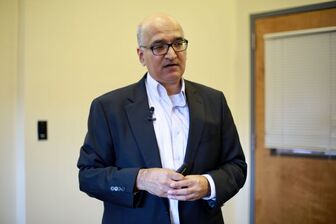 I am an author, speaker, career success coach. I guide people thrive on high stakes stage whether it's for a job interview, career advancement, a sales presentation or a high-stakes speech. I am the author of a practical book on speaking titled Winning Speech Moments: How to Achieve Your Objective with Anyone, Anytime, Anywhere. The main idea of the book is that if you want people to remember your speech and take action, you must create a winning speech moment. Please download the free speech checklist I created that I always use to create a winning speech for any occasion. Please contact me if you would like to thrive on high stakes stage. You can reach me at joza@winningspeechmoments.com or 732-847-9877. Note, if you are an author, executive, podcaster or interesting and would like me to interview with five questions and then publish it as a blog post and promote it on LinkedIn, Twitter and Facebook and become famous, please contact me. We are often told that questions are more important than answers. This is because you can quickly get answers from so many places such as Siri, Google, Internet, Quora, LinkedIn, and other expert sources. Today, you can get answers to just about anything fast. If you want to succeed individually or organizationally, you have to become good at asking questions. Asking questions is good, but what is better is to ask bold, provocative questions that make people think. They are often not asked for fear of how others will react to them. But they must be asked if you want to come up with breakthrough ideas. If you want to think like an entrepreneur, solving customer needs that they may not even know they have, starts with a question. That's what entrepreneurs or those with an entrepreneurial mindset do. In his book New to Big by David Kidder, he writes that the idea of his company Bionic started when he asked a provocative question to GE's CEO, Jeff Immelt, at their annual conference in Boca Raton, FL. Here is the question David asked when he was part of a panel, and Jeff Immelt was sitting in the front row: "Jeff, how many fifty-million-dollar startups did GE launch last year? ... I bet the answer is zero ... And if that's true, I would be terrified if I were you. With ninety billion dollars in the bank and three hundred thousand employees, how does this not happen all the time?" Instead of David Kidder becoming a persona non grata at future GE events, he was surprised when Jeff Immelt said at the end of their annual conference: "That was the most important question in the history of this leadership conference." Suddenly, David realized that his idea of creating an entrepreneurial mindset within large companies had to be pursued as a business. Many large companies had to become good at New to Big (taking an idea from concept to growth business) rather than being just good at Big to Bigger (taking a growth business and scaling it). He and some of his team members he worked with at the startup Clickable that David had co-founded decided to start Bionic. Bionic's mission was to help bring entrepreneurial mindset within larger companies using Growth OS (methodology they created from their startup experience, so the large companies are not only Big to Bigger machine, which they do well, but New to Big machine too. Becoming a New to Big is not something companies can and should outsource. They have to learn to develop that core competency if they want to thrive in the digital world in which we live. Bionic went on to work with many companies, including Microsoft, P&G, Citigroup, Nike, Exelon, etc. The idea of starting Bionic would not have happened if David did not have the guts to ask that bold question in a high-stakes environment at GE's leadership conference. Sometimes the risky thing to do is to ask a question that many people are thinking about but not asking. If you want to have an entrepreneurial mindset, ask a provocative question as David Kidder did, and you can change the world for good. ##### 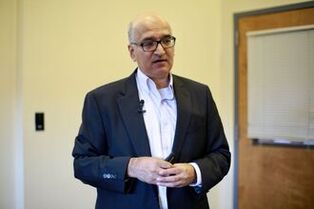 Jay Oza is an author, speaker, executive coach. He makes people thrive on high stakes stage whether it's for a job interview, a sales presentation or a high-stakes speech. He is the author of a practical book Winning Speech Moments: How to Achieve Your Objective with Anyone, Anytime, Anywhere. You can get this book on Amazon for $9.99 for a limited time. Please download the free speech checklist that you can use to help you create a winning speech for any situation. Please contact him if you would like to discuss how you can work with him even if you are budget constrained due to the pandemic. If you are interested in inviting him to give a Zoom talk on job Interviewing or high-stakes speaking, you can reach him at joza@winningspeechmoments.com. |
AuthorJay Oza Archives
July 2023
Categories
All
|
© 2017 Winning Speech Moments

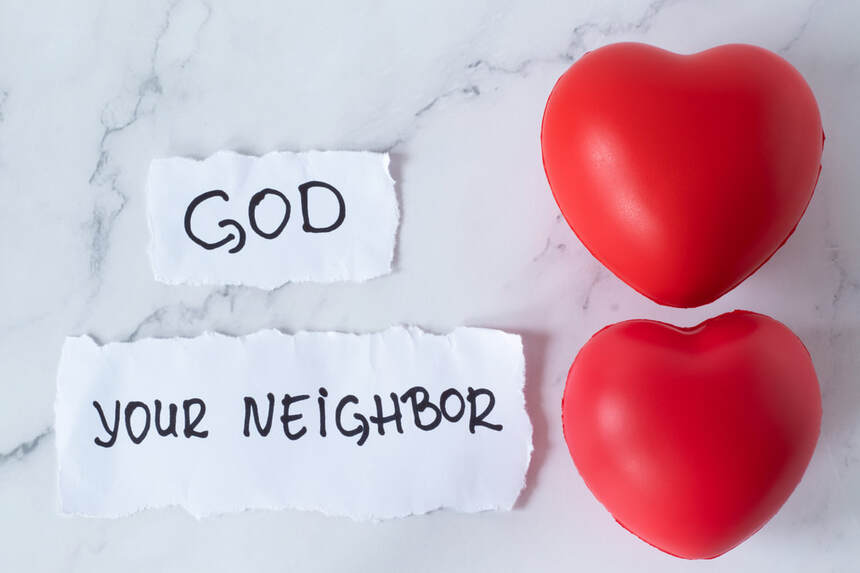








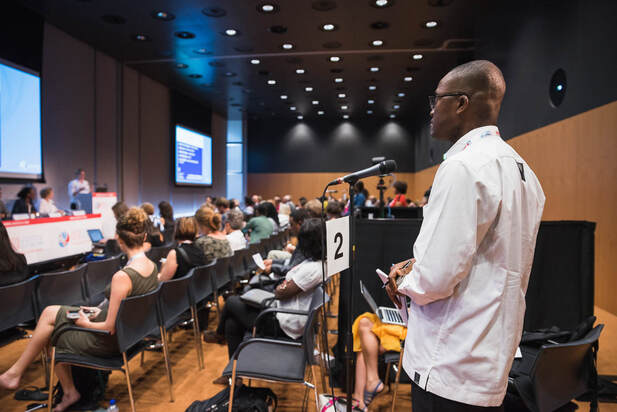
 RSS Feed
RSS Feed